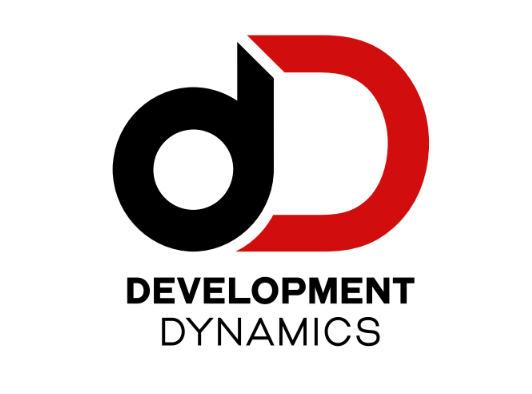

Development Dynamics

Nairobi, Kenya
February 2024
Management consultant - nonprofits
Service with Minor Environmental Footprint
Ethiopia,
Kenya,
Namibia,
Netherlands The,
Nicaragua,
Nigeria,
Rwanda,
Somalia,
South Africa,
South Sudan,
Tanzania,
Uganda,
United Kingdom,
Zambia,
Zimbabwe
Development Dynamics is a pan-African social innovation think tank. We partner with leaders, organisations, and communities to drive innovation for a more inclusive, just and sustainable society. We fuse design thinking, systems practice, and foresight principles to shape the future of impact. We are an Insights Hub that unearths hidden solutions to social impact challenges, an Impact Accelerator that propels purpose-driven initiatives to success, and an Innovation Catalyst that multiplies funds & returns on game-changing investments. We specialise in (i) Strategy Development, creating agile, future-ready strategies with data-driven insights, championing innovative solutions that shape the future of impact, (ii) Organizational Capacity Strengthening and Movement Building, aligning individuals, teams, and culture to unlock lasting potential for transformative change and growth in organisations, collectives, coalitions and movements, and (iii) Innovation and Impact Measurement, managing measurable, impactful results and tracking real-world effects to guide innovation, investments, and targeted efforts.
Overall B Impact Score
Governance 16.8
Governance evaluates a company's overall mission, engagement around its social/environmental impact, ethics, and transparency. This section also evaluates the ability of a company to protect their mission and formally consider stakeholders in decision making through their corporate structure (e.g. benefit corporation) or corporate governing documents.
What is this? A company with an Impact Business Model is intentionally designed to create a specific positive outcome for one of its stakeholders - such as workers, community, environment, or customers.
Workers 27.1
Workers evaluates a company’s contributions to its employees’ financial security, health & safety, wellness, career development, and engagement & satisfaction. In addition, this section recognizes business models designed to benefit workers, such as companies that are at least 40% owned by non-executive employees and those that have workforce development programs to support individuals with barriers to employment.
Community 26.9
Community evaluates a company’s engagement with and impact on the communities in which it operates, hires from, and sources from. Topics include diversity, equity & inclusion, economic impact, civic engagement, charitable giving, and supply chain management. In addition, this section recognizes business models that are designed to address specific community-oriented problems, such as poverty alleviation through fair trade sourcing or distribution via microenterprises, producer cooperative models, locally focused economic development, and formal charitable giving commitments.
Environment 1.3
Environment evaluates a company’s overall environmental management practices as well as its impact on the air, climate, water, land, and biodiversity. This includes the direct impact of a company’s operations and, when applicable its supply chain and distribution channels. This section also recognizes companies with environmentally innovative production processes and those that sell products or services that have a positive environmental impact. Some examples might include products and services that create renewable energy, reduce consumption or waste, conserve land or wildlife, provide less toxic alternatives to the market, or educate people about environmental problems.
Customers 18.0
Customers evaluates a company’s stewardship of its customers through the quality of its products and services, ethical marketing, data privacy and security, and feedback channels. In addition, this section recognizes products or services that are designed to address a particular social problem for or through its customers, such as health or educational products, arts & media products, serving underserved customers/clients, and services that improve the social impact of other businesses or organizations.
What is this? A company with an Impact Business Model is intentionally designed to create a specific positive outcome for one of its stakeholders - such as workers, community, environment, or customers.